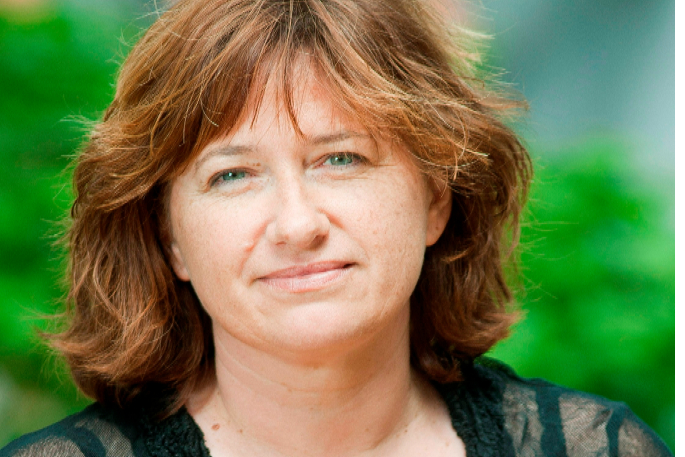New studies show Covid-19 has been associated with an increased risk of shingles for people aged 50 years and older, and most Bay of Plenty residents are unaware of the dangers of shingles.
The study of almost 2 million US patient cases found people aged 50 and over who had contracted Covid-19 are 15 per cent more likely to develop shingles, and the risk is elevated to 21 per cent for those who had been hospitalised with Covid-19.
Shingles (herpes zoster), is a viral infection caused by the reactivation of the varicella-zoster virus (VZV), also known as chickenpox. Symptoms caused by the disease can be debilitating and may see antidepressants and opioids prescribed to manage intense levels of pain.
New market research which found that most Bay of Plenty adults studied are unaware of the risks of shingles, has experts calling for more to be done to better inform those in high-risk groups, such as those over 50 years of age.
Results of the market research show that 71 per cent of Bay of Plenty residents aged 50 and over say they have little to no knowledge of the shingles virus. Among those that are aware of shingles, the data shows most expect the virus would have a negative or extremely negative effect on their quality of life.
Researchers believe a drop in T-cell immunity resulting from exposure to Covid-19 among the patients, who were not vaccinated against it, may be a trigger for the onset of shingles.
Almost all adults aged over 50 already have the virus that causes shingles in their body due to an initial chickenpox infection. Around a third of these will develop shingles in their lifetime when the virus reactivates.
Most commonly, the shingles rash or blisters wrap around one side of the torso. Shingles can also be intensely painful, and the disease is associated with a range of complications which for some people can include vision loss, cardiovascular and stroke events, hearing loss, scarring and neurological problems.
When damaged nerve fibres send confused and exaggerated messages of pain from skin to brain, patients can be impacted by long term pain - known as postherpetic neuralgia (PHN). Around a third of people with shingles may develop PHN, which can last for months or years. The condition is more likely to occur in older patients and can be associated with depression, anxiety and weight loss.
Dr Helen Petousis-Harris, Associate Professor, Department of General Practice and Primary Health Care at the University of Auckland says shingles can be debilitating even for patients who are generally healthy.

Dr Helen Petousis-Harris. Supplied Photo.
'Everyone who has had chickenpox has a one in three risk of developing shingles at some stage in the future. This is because the virus remains in the body, kept at bay by the immune system. As we age it can reactivate and manifest as shingles.
'It's an extremely painful illness which often leaves patients with ongoing pain. Other complications can include a secondary infection, and in some cases, patients may die with or from the illness.
'My advice to Kiwis aged 50 and over, who have previously had chickenpox, is to check with their HCP on how they can prevent the development of shingles,” she says.
Dr Petousis-Harris says the impact can be debilitating even for healthy patients and those who are immunocompromised, have underlying diseases like cancers are at more risk of complications which could include fatality.
'Generally, shingles starts as a tingling, red blistery and itchy rash which is a reactivation of the herpes zoster virus. It begins on the trunk or wraps around the left or right side of a patient's body and may form clusters around nerve pathways. It can also move to other parts of the body including the back, side of the face and even the eye which can result in loss of sight.
'The newly published Covid-19 and shingles study shows that unvaccinated patients in the study who contracted Covid-19 have a heightened risk of developing shingles. Although the NZ population is highly vaccinated, more than 100,000 Kiwis aged 50+ have reported being infected with Covid-19 which potentially puts these people at increased risk of reactivating the herpes zoster virus,” she says.
Brett Marett, medical director at GSK NZ says that the introduction of a new shingles vaccine can help protect potentially hundreds of thousands of Kiwis who may be at risk of developing the disease.
'New Zealanders aged 50+ make up around a third of the total population and an estimated third of these, over 550,000 Kiwis, will develop shingles which we know is a potentially serious and extremely painful disease.
'The introduction of a new shingles vaccine to New Zealand that can offer a high level of protection against this virus is timely given the result of the recent study which highlights the importance of preventative measures, such as vaccination, to protect the health and wellbeing of this age group who are at risk of both COVID-19 and shingles,” he says.
New Zealand is the 20th country to offer a new vaccine from GSK, Shingrix. Shingrix is a new vaccine for the prevention of shingles and post-herpetic neuralgia in adults 50 years of age and older and is now available in New Zealand through a prescription from a doctor. Shingrix is the first approved shingles vaccine to combine a non-live antigen with a specifically designed adjuvant to trigger a targeted, strong and sustained immune response.
The vaccine is proven to have over 90% efficacy against shingles in all age groups 50 plus in clinical trials, and sustained efficacy for at least seven years post-vaccination, which continues to be monitored. As with any vaccine, a protective immune response may not be elicited in all vaccines.
The vaccine is proven to have over 90% efficacy against shingles in all age groups 50 plus in clinical trials, and sustained efficacy for at least seven years post-vaccination, which continues to be monitored. As with any vaccine, a protective immune response may not be elicited in all vaccines.



2 comments
Too expensive...
Posted on 25-07-2022 16:25 | By fair game
all very well saying to get vaccinated, but when I questioned it at my medical centre, it was well over $400 !! No wonder people won't get it.
Under 65s and over 65s
Posted on 25-07-2022 21:38 | By Scootagirl
I recently enquired about this vaccine at the doctors - $800 for under 65s for 2 injections a few months apart. A different vaccine for over 65s for shingles is free.
Leave a Comment
You must be logged in to make a comment.